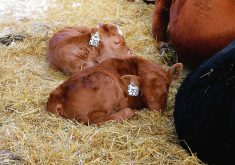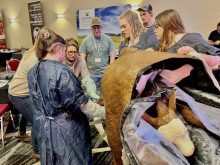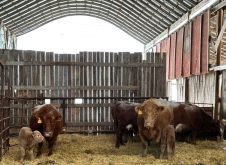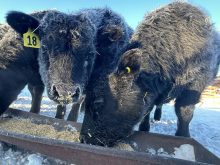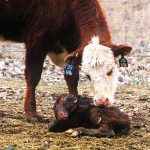The key to rebuilding Manitoba’s cattle herd is going to be rebuilding its cohort of young beef producers.
Brett McRae, whose family’s Mar Mac Farms near Brandon features a 200-head purebred Angus and Simmental herd, also heads up the Young Cattlemen’s Council, a subsidiary of the Canadian Cattlemen’s Association. He hopes that organization can help get younger producers engaged.
“As a young producer involved in YCC it really allows you to see what is going on beyond your own farm’s gates,” McRae said. “You get to see what your checkoff dollars are used for, insight into trade deals and updates on research initiatives. I think that it is really important for young producers to be in touch with this side of the industry.”

YCC is a national collective that links members of the cattle industry aged 18 to 35 with industry news, policy and sector organizations.
Why is rebuilding cattle numbers important? Because they’ve never really recovered from the hit they took from the BSE crisis and ensuing years of low prices. It was one of the first issues Ralph Eichler, the province’s agriculture minister and a former cattle producer, talked about following his appointment this past May.

“When I look at our numbers we were at about 750,000 at our high, when we had our best beef numbers. Our cows now are down to just over 400,000,” Eichler said during a tour of the Manitoba Beef and Forage Initiative farm earlier this summer. “We want to see that grow and get back to where we were prior to BSE and we need to encourage young farmers to be involved in that.”
Despite this acknowledgment however, the province has not yet outlined any new initiatives directed toward young cattle producers. Eichler says there are things the government could do to ease young producers into the sector and thereby contribute to rebuilding the herd.
“There are things that we can do as government to help young people get involved,” Eichler said. “We could look at financial incentives, and there are some now, but not at the extent where I think they need to be, in particular for the beef sector.”
Read Also
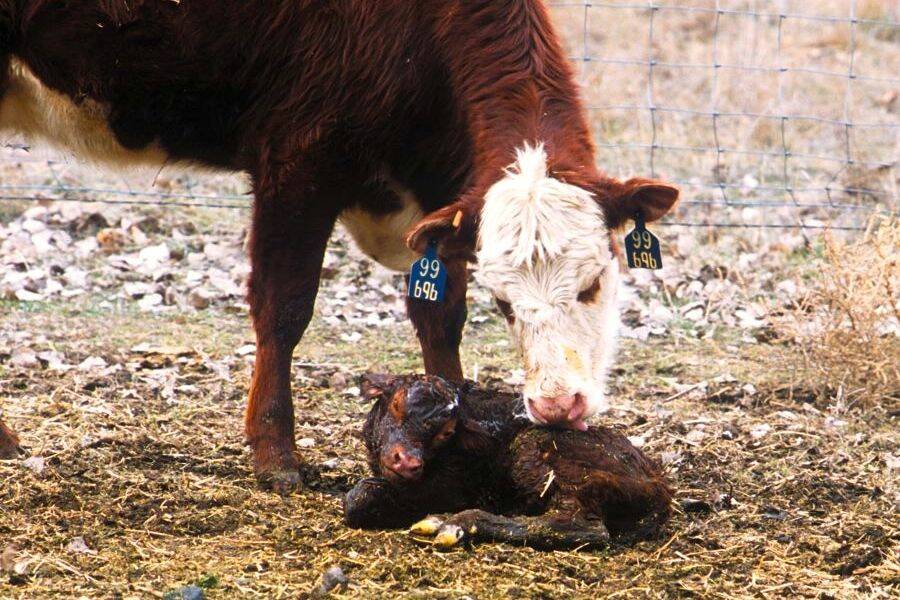
Scours doesn’t hibernate: Infectious risks for cold weather calves
Identifying specific pathogens and management flaws is essential for effective calf scours treatment and prevention on your farm.
That’s music to McRae’s ears, but he hastens to add those solutions shouldn’t be proscriptive and should consult the producers they’re intending to help.
“When discussions and resolutions are taking place we need to have young cattle producers in that conversation because they are the future of the industry and we need to have their concerns heard,” McRae said.
Towards that end, YCC board members are working towards building stronger relationships with organizations in each province, McRae said.
“In Manitoba, we want to have a better working relationship with the Manitoba Beef Producers. We want to provide value to them so that they have a better connection with the young and up-and-coming beef producers in the province and then together we can find innovative ways to increase cattle numbers,” McRae said.
YCC consists of six provincial representatives and three elected directors who participate in industry events and hold a seat around CCA’s various committee tables.
Besides staying abreast to the industry’s latest, being a member of YCC also provides a venue for networking.
“The networking opportunity here is huge. That is the biggest benefit,” McRae said. “We want to provide the opportunity to get around like-minded people who are innovative and progressive in the beef industry so that you can be on the real cutting edge of what is going on, what is new, and what other producers are doing that is successful.”
The YCC board hopes to increase its membership across the country in order to strengthen the voice of young producers when it comes to resolutions and policy development.
“For our general membership, we try to be the conduit of information between CCA and young cattle producers, as well as taking the opinions and views of the young cattle producers back to the CCA, so that when they are developing policy they can develop that with the future in mind,” McRae said.
Appropriate to the demographic, YCC is also highly active on all the available social media channels.
“We have a Twitter account and a YCC Facebook discussion page where we will post information about recent issues or new research and we invite discussion around that,” McRae said. “When the whole Earls debate was going on, when it had released its marketing strategy back in the spring, our discussion page was very active on how we can better promote Canadian beef and what we should be doing to work better with companies like Earls.”
McRae added that free membership is open to beef producers between 18 and 35.






